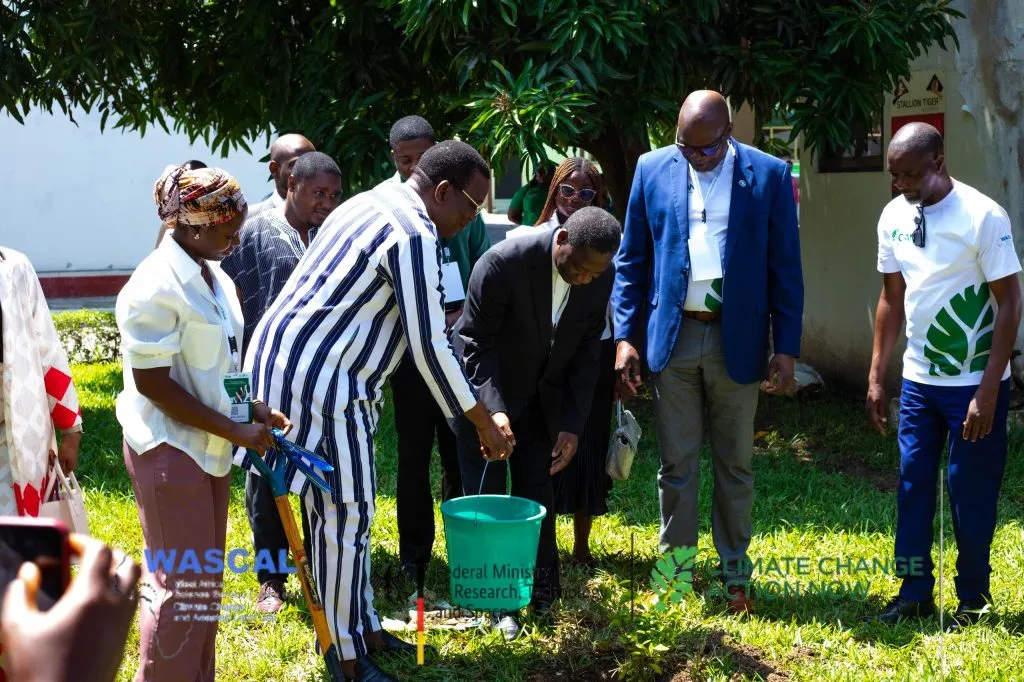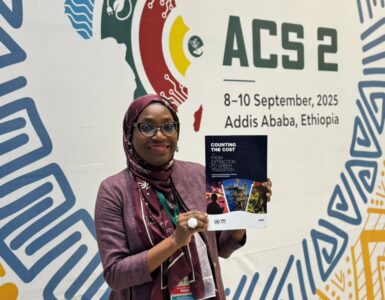To combat the impact of climate change on Ghana, the West African Science Service Center on Climate Change and Adaptation Land Use, WASCAL, has launched an action plan which seeks to empower the youth to take action now.
The five-year project which will end in 2030 will train 50 thousand youth leaders to advocate for climate policies and actions as well as support grassroots organizations to design and implement innovative projects that address the needs of local communities. This initiative forms part of activities to mark World Environment Day which is observed on June 5 each year.
The Climate Change Action Now, CCAN, project comes as Ghana like many African countries is experiencing the adverse effects of climate change, with rising temperatures, unpredictable rainfall and extreme weather events threatening agriculture, water resources, livelihoods and the environment.

Climate Change Action Now, CCAN, will build on the knowledge of the youth between the ages of 18 to 35 and provide them with tools to engage in climate action. It will also mobilize 30 schools and educational institutions to adopt sustainable practices.
Executive Director of WASCAL Prof. Emmanuel W. Ramde, expressed worry on how climate change is fueling conflicts in Africa adding that the youth become targets in such cases. Prof. Ramde said WASCAL is dedicated to grooming the to shape and commercialize their ideas.
He indicated that the correlation between climate change and entrepreneurial skills could be a solution to youth unemployment adding that so far WASCAL has trained about 500 graduates, Masters, and PhD students in various fields such as climate change and economy, climate and conflict, climate and health, marine life, and blue economy, among others.
Experts indicated that while the country may seem to be fighting climate change, our action may rather be contributing to intensifying the impact adding that the you must be seen to be leading the fight.
A Professor at University of Cape Coast Prof Nyarko said there are several youth-led innovations such as clean energy, recycling and manufacturing of various products to enhance livelihoods. and urged stakeholders to support such youth-led initiatives. They however require access to funding, a platform to operate, and mentorship to make genuine decisions. “We need an ecosystem that supports the youth. Resilience is not about bouncing back but by moving forward.”
He called on the government to facilitate the provision of micro grants or seed funding to nature, their innovations and ideas of the youth.
Director of Graduate Studies Programme, Kwame Nkrumah University of Science and Technology (KNUST), Prof. Wilson Agyare, mentioned deforestation, urbanisation, and unsustainable farming as some of the activities affecting the climate. He said that land use and planning were only done on paper but did not happen in practical terms.
Prof Agyare emphasized the need to educate children on climate literacy and called for the preservation of Ghana’s wetlands.
The project intends to reach over five thousand grassroots community members through direct engagement and media campaigns and at least five thousand digital audiences via social media advocacy and storytelling.
By: Doreen Ampofo/GBC


























